lectures | catalogs | CDs/DVDs | soundpicdocs
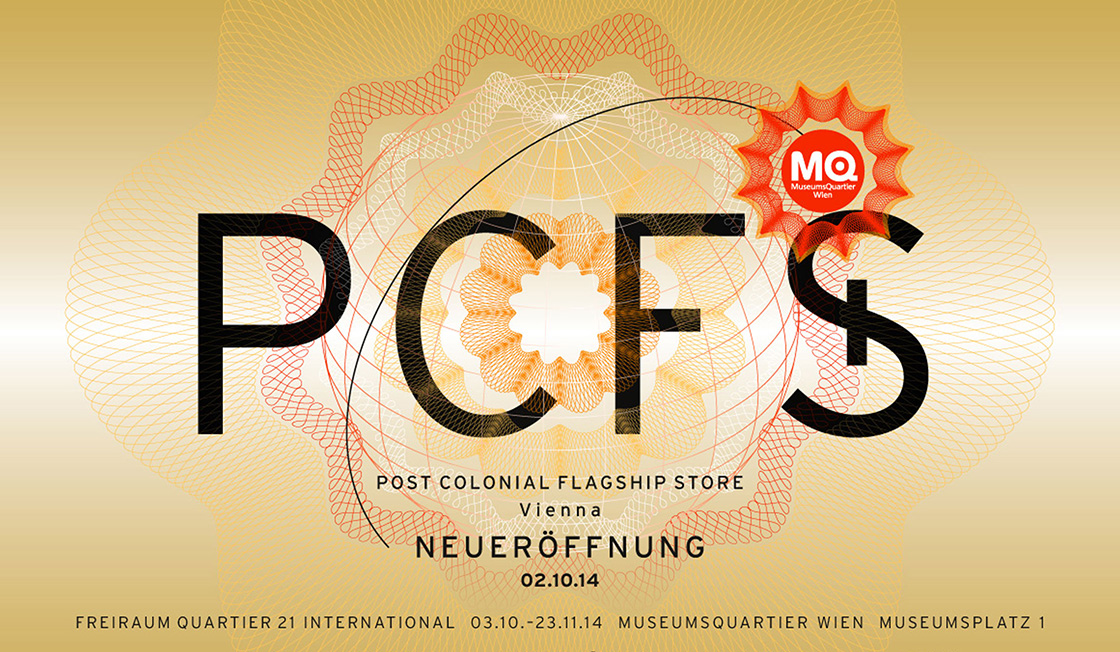
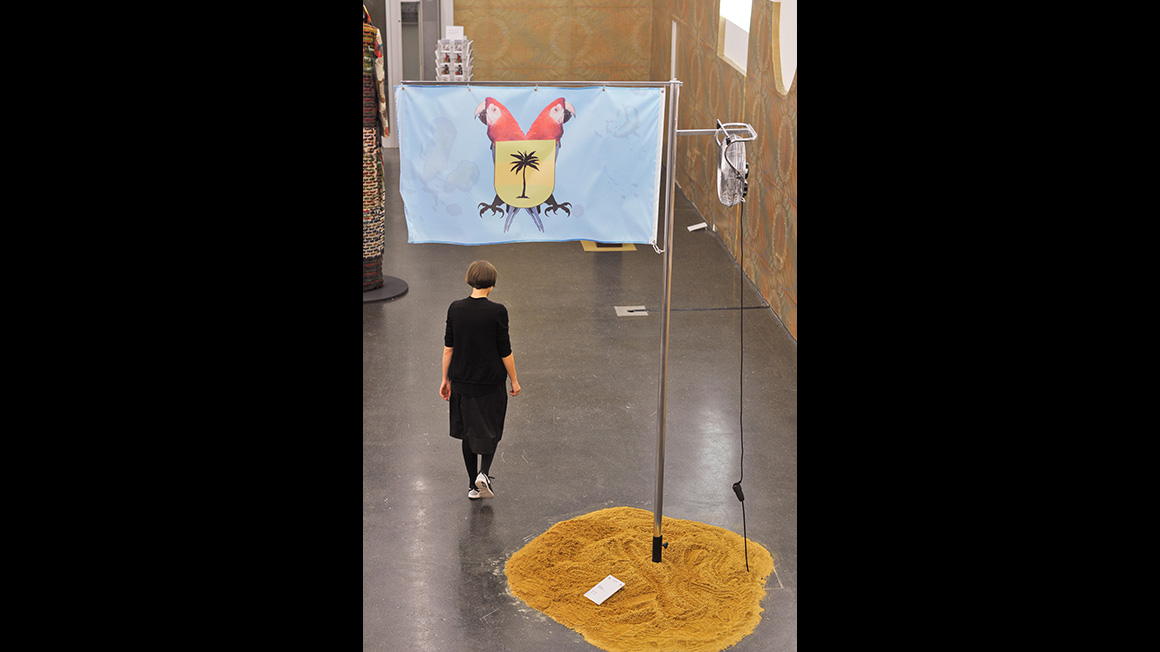


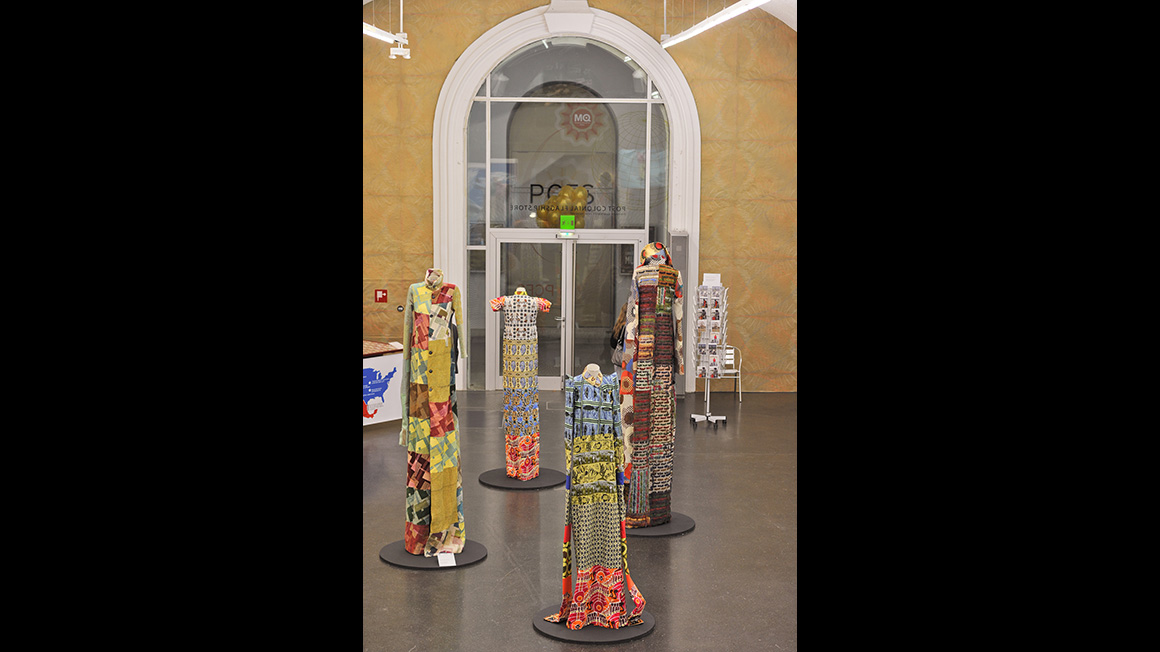

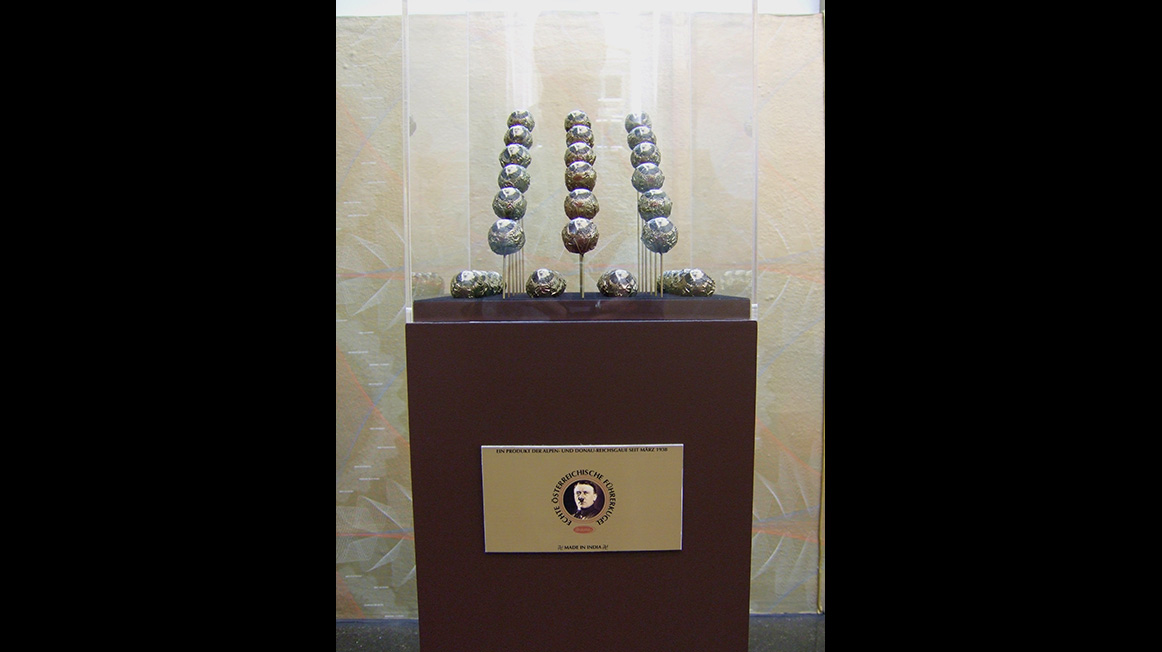
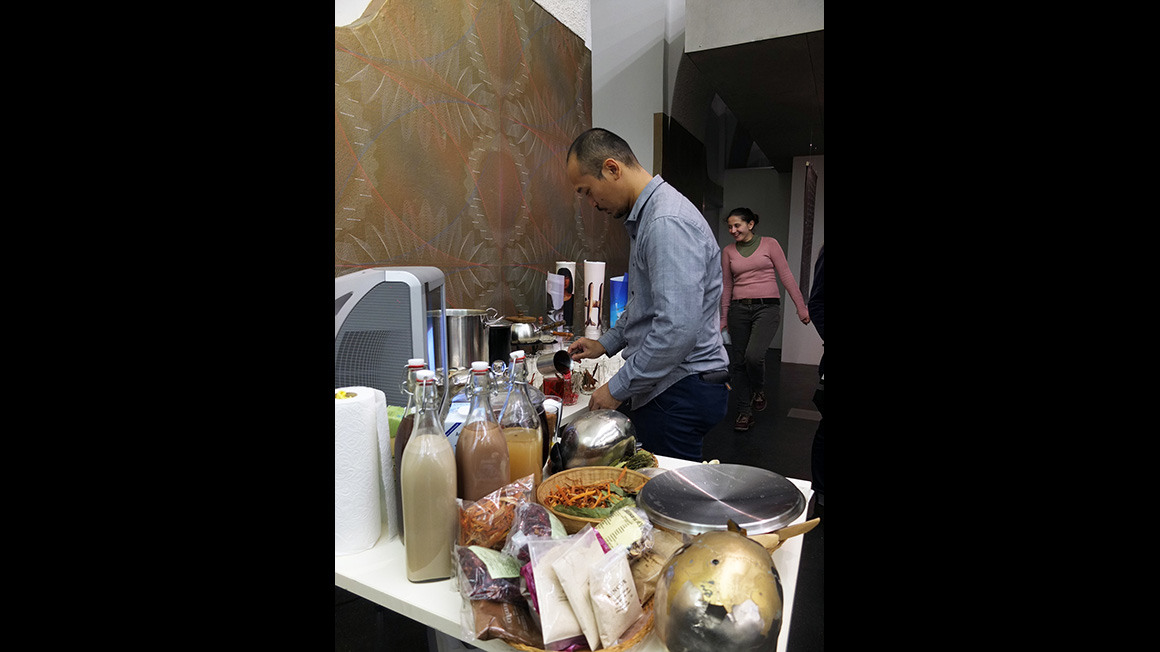
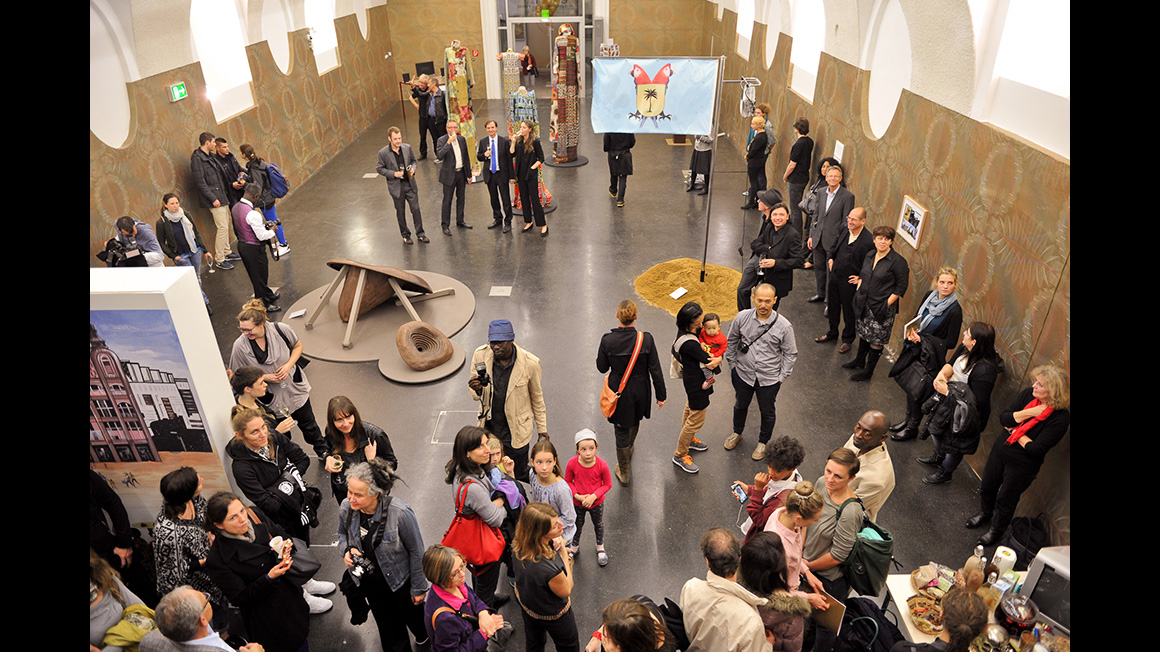

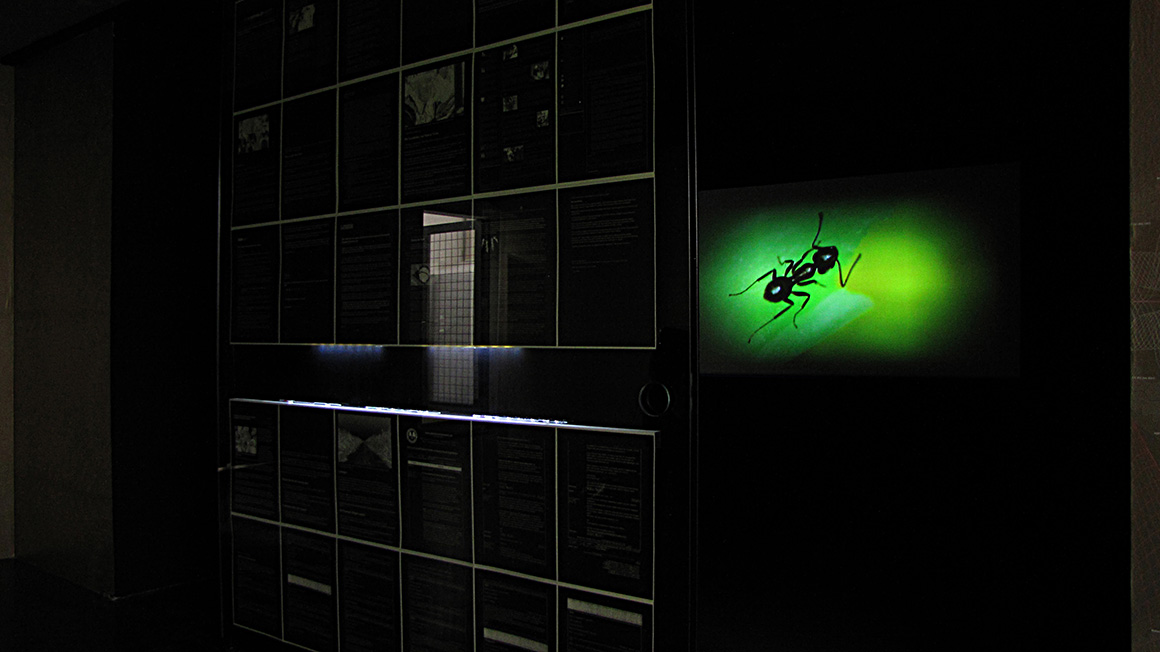
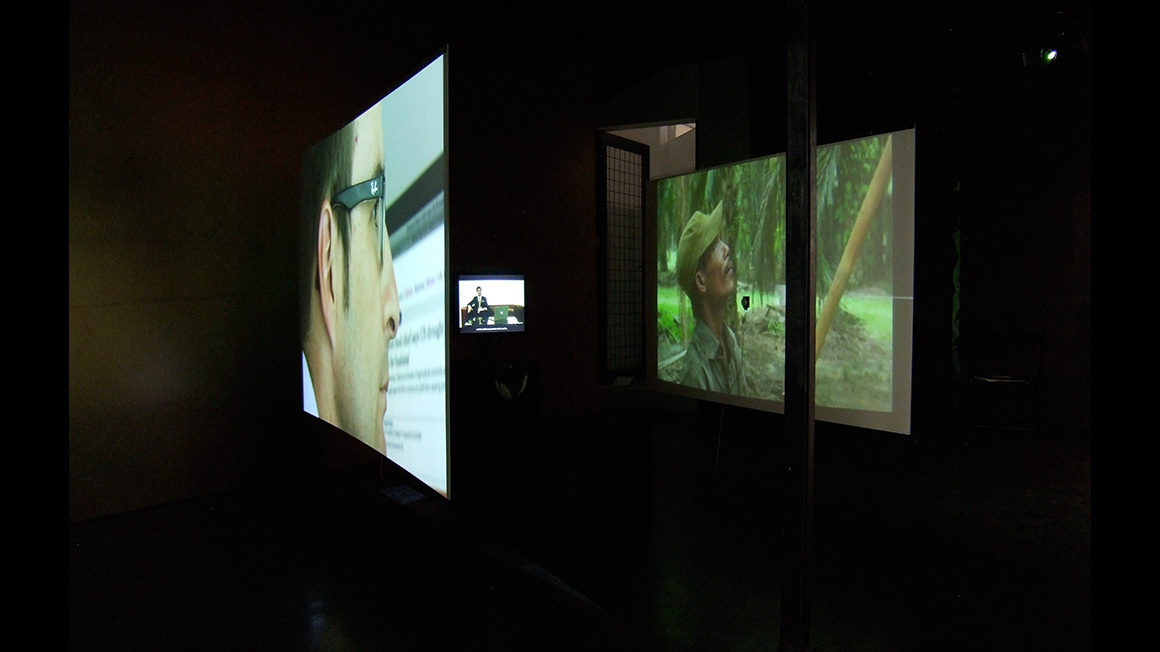
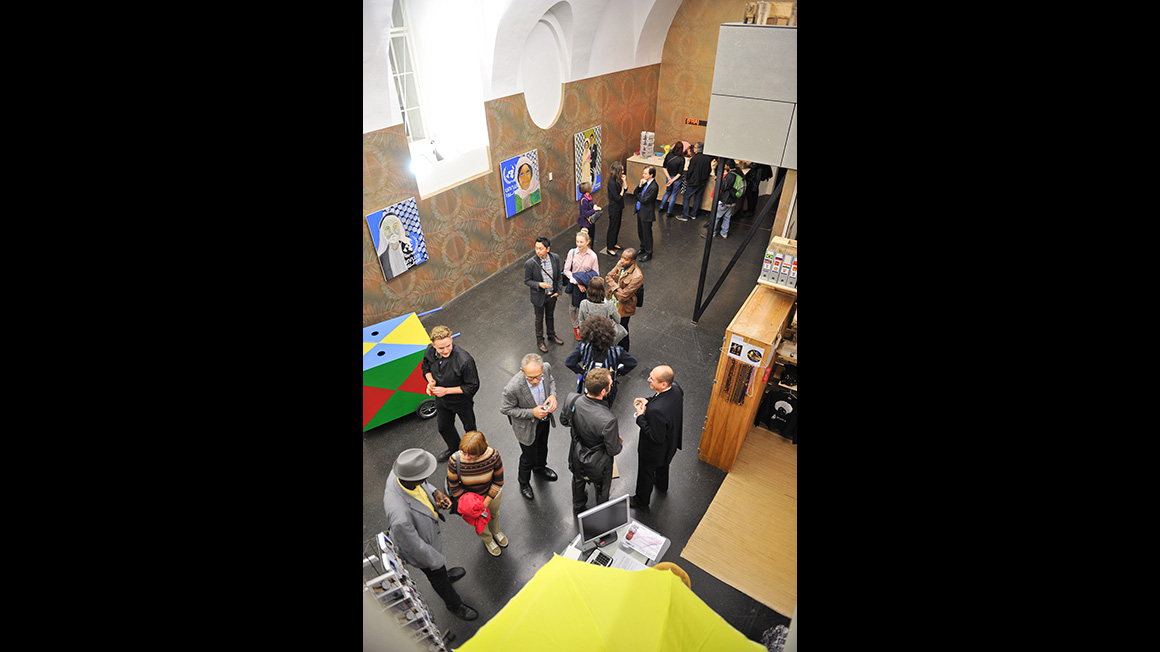
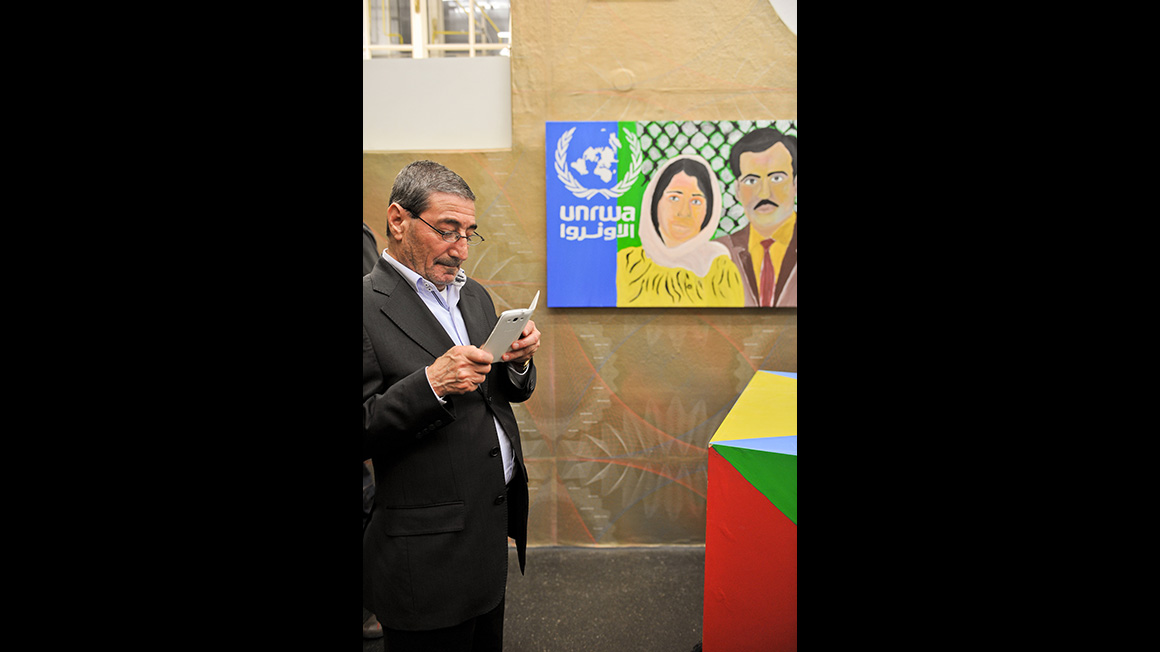
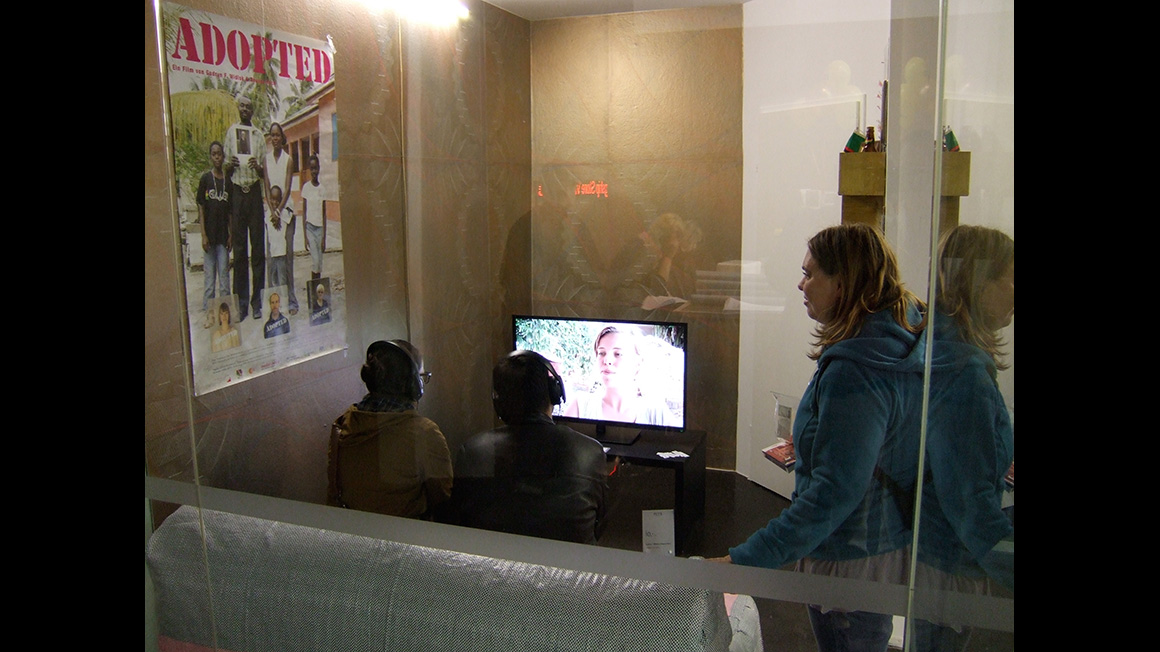
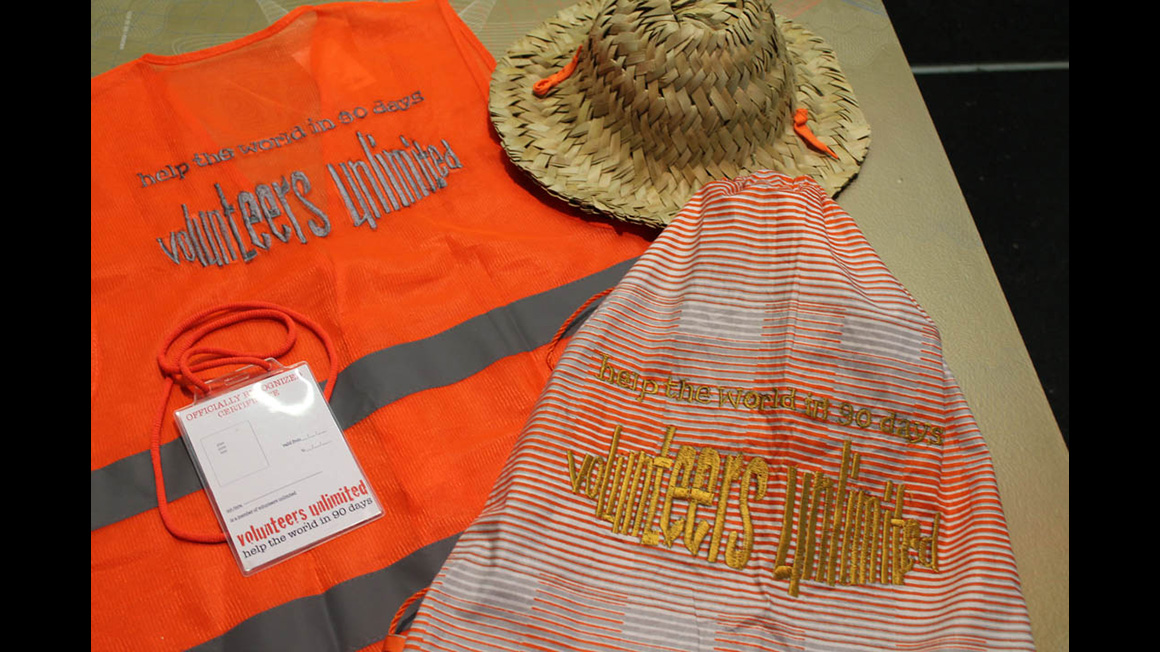

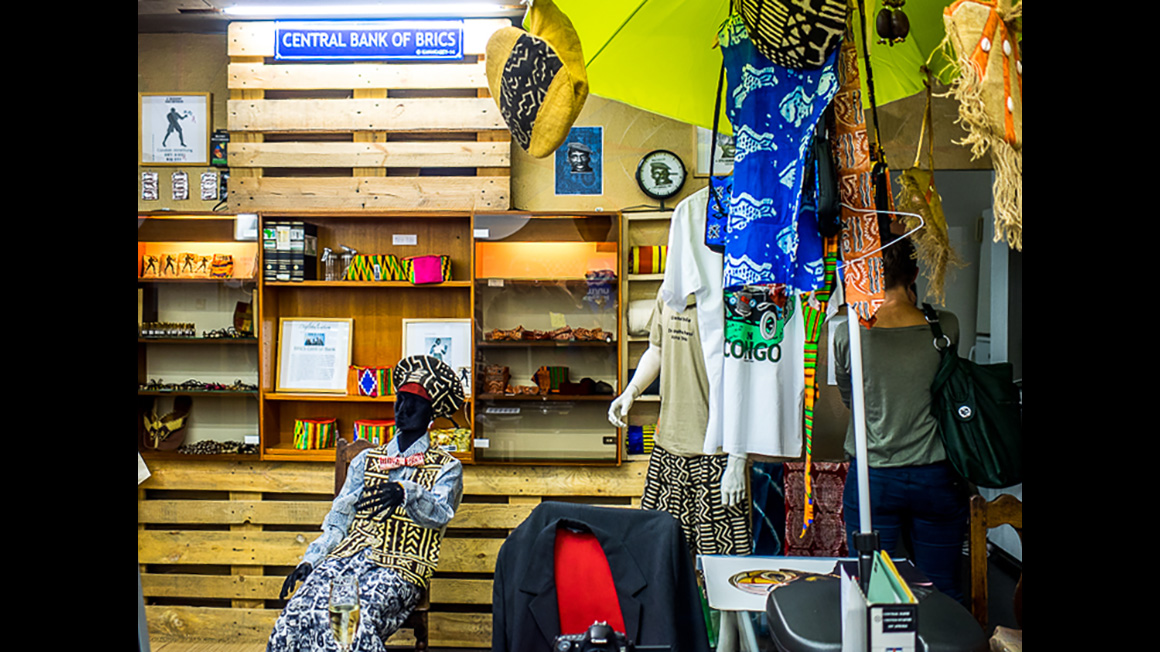
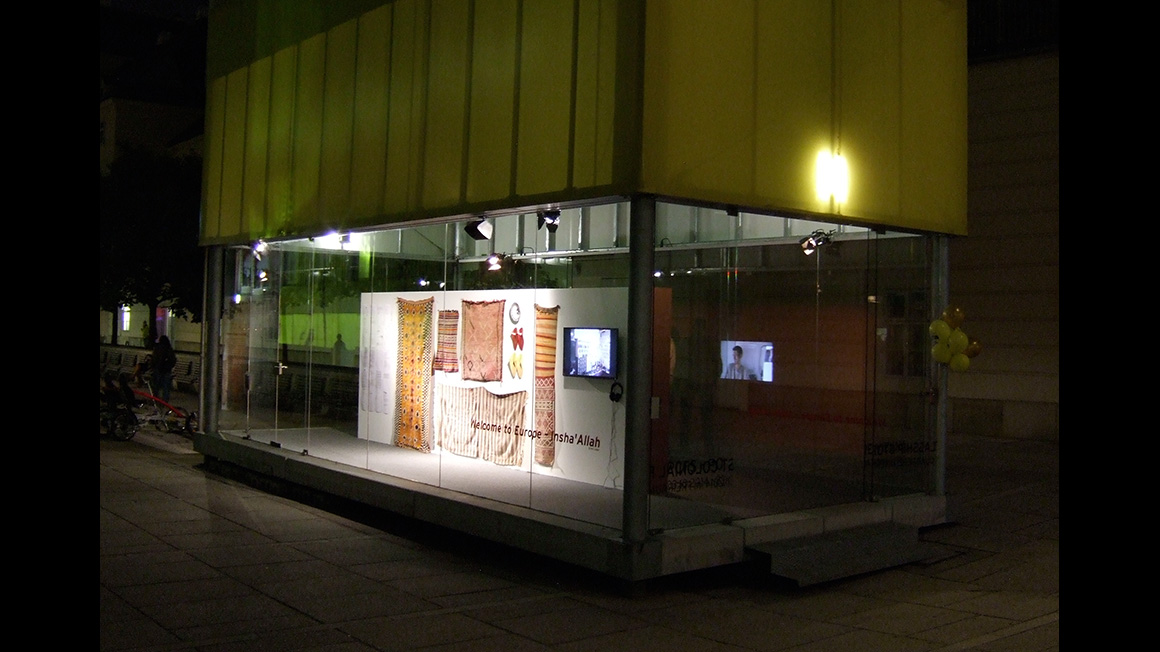

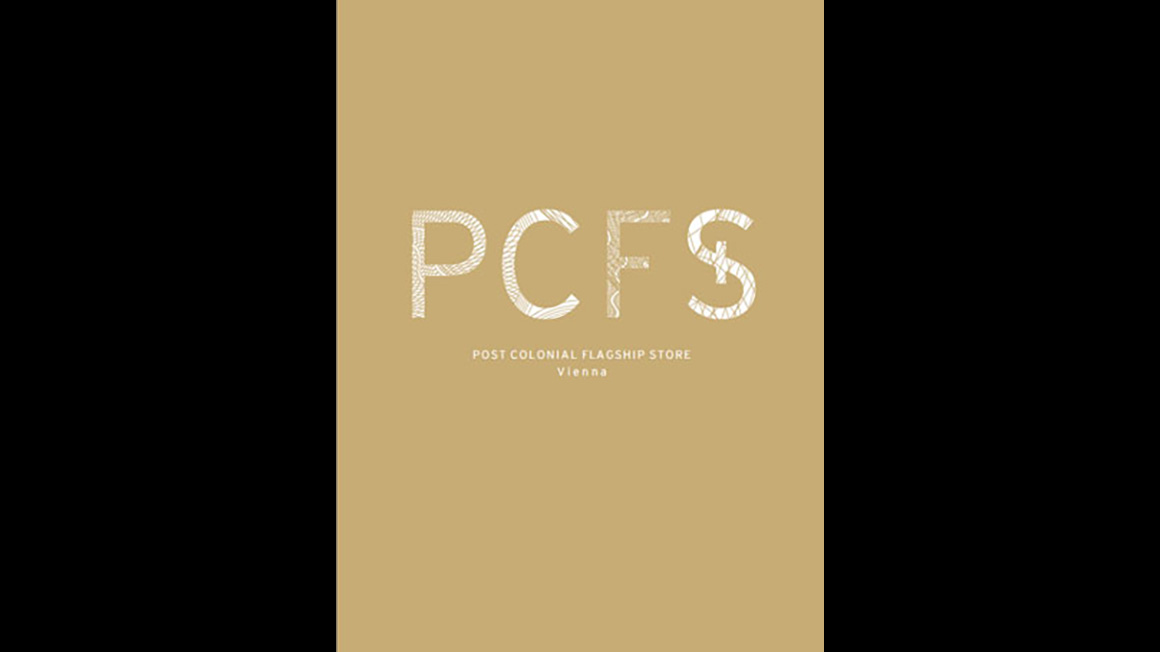
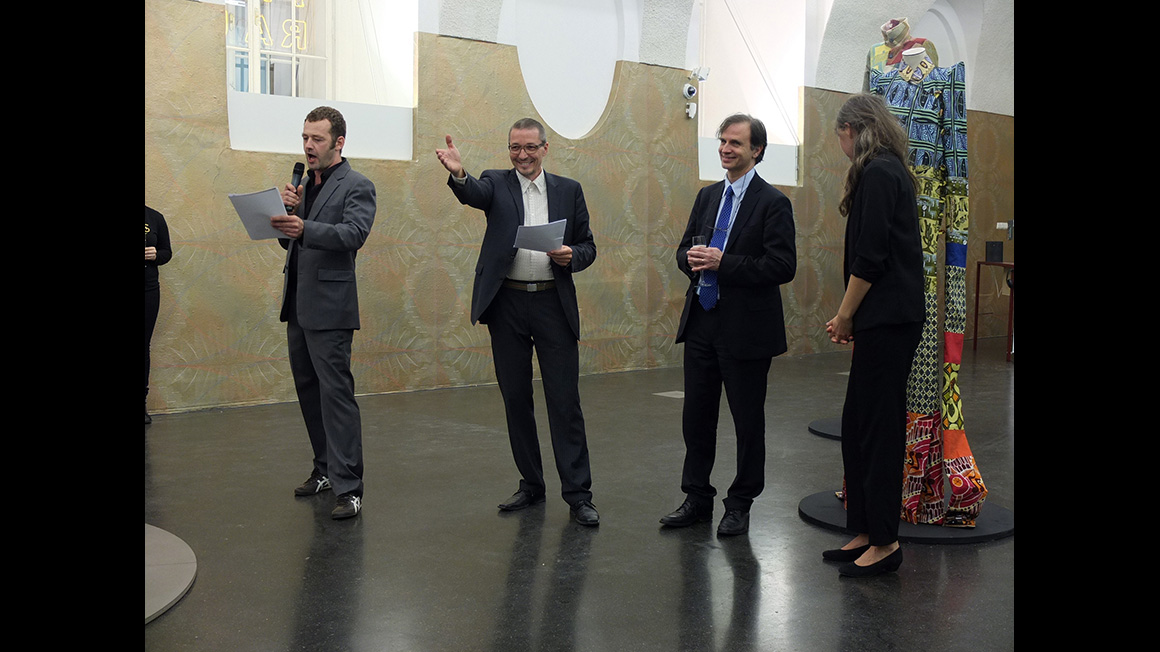
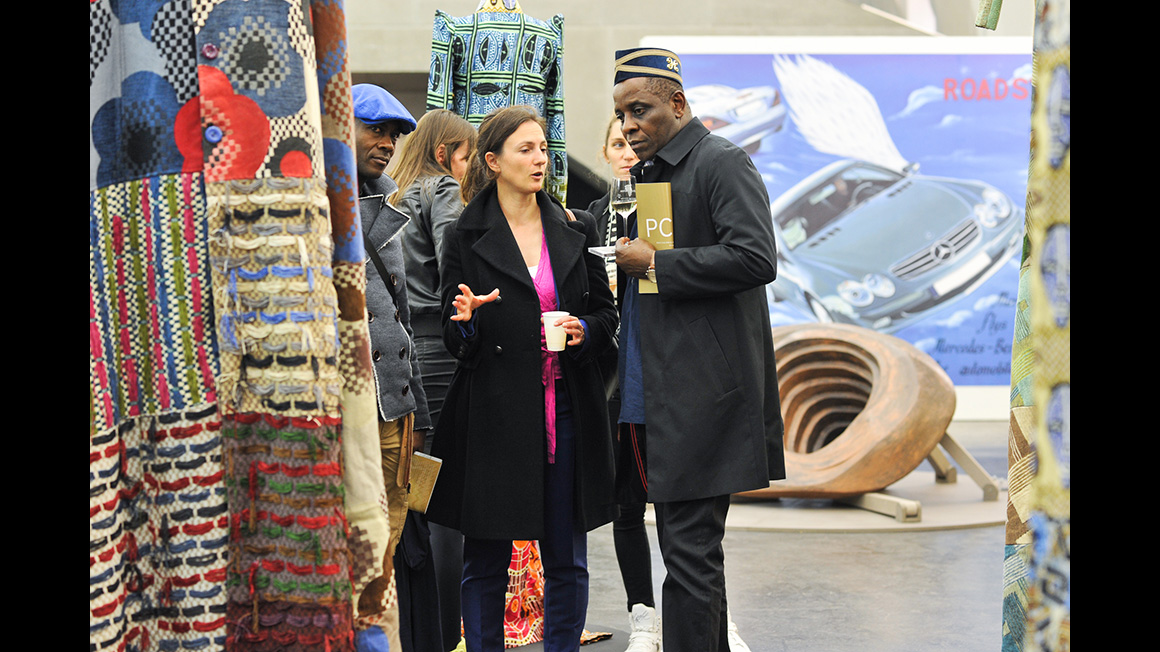
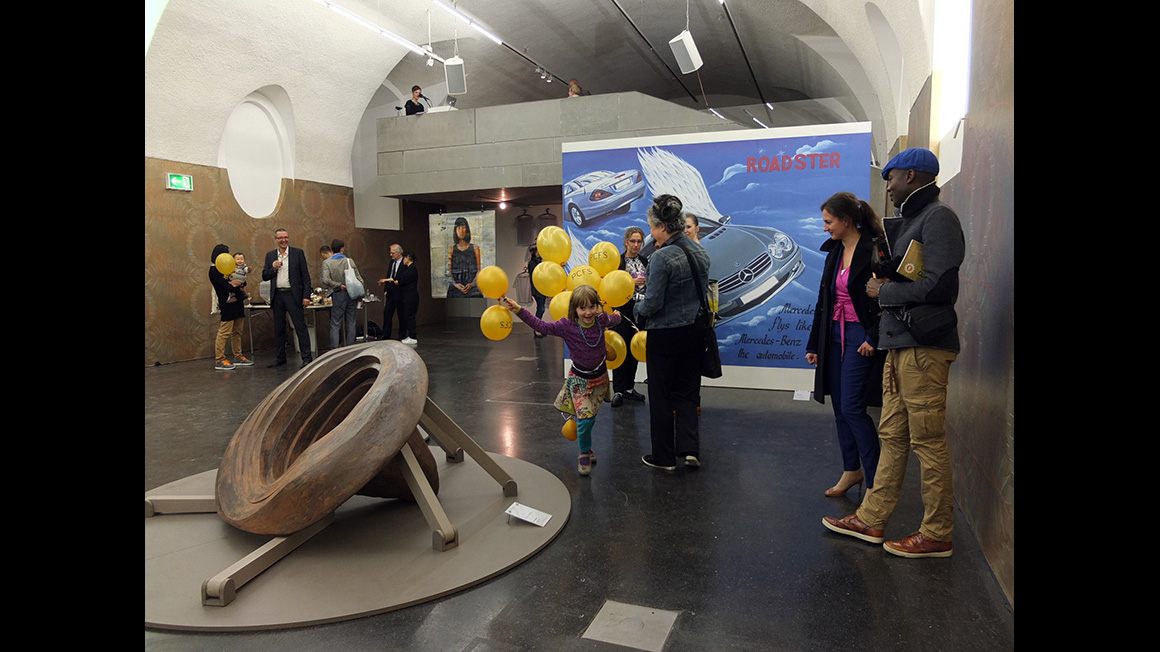
| >> catalog pdf >> press >> printable photos >> video >> PCFS website |
| Post Colonial Flagship Store 2014 Exhibition curated by Georg Klein and Sven Kalden with works by Mario Asef, Nasrin Abu Baker, Bernhard Draz, Agnès Guipont, Sven Kalden, Mansour Ciss Kanakassy, Georg Klein, Ingeborg Lockemann, Ernst Logar, Israel Martinez, Lamyne Mohamad, Erik Pauhrizi, Joachim Seinfeld, Signe Theill, Steffi Weismann, Gudrun F. Widlok |
|
The exhibition project Post Colonial Flagship
Store (PCFS) tackles the structures and methods of a new worldwide
economic colonialism, presenting works of 16 artists in the camouflage of commercial
culture. What the colonial goods store was a hundred years ago is today the global flagship store. The objects and projects exhibited in the PCFS toy with commercial identity, reversing the roles or seducing the visitor with modern forms of colonialism, creating an explicitly post-colonial space – a space in which we become aware of both the past and the present manifestations of colonialism, in order to be able to overcome them. Curatorial Statement by Georg Klein and Sven Kalden Following Traditions – Creating Markets Since the outbreak of the global financial crisis Europe has been entirely occupied with itself, struggling with bankrupt states and rescuing big banks and their investors. And even today, Europe is still not prepared to acknowledge the foundation of its own wealth, which remains immense, even if increasingly unjustly distributed: the colonial past and the post-colonial present. Colonialism is not over, it is all over. (Walter Mignolo, 'Black Europe Body Politics') The process of globalisation – which has its origins in the first colonial discoveries in the 15th century, whose “defining motive was the unrestrained greed for gold” (Arno Klönne) – today leads to the creation of more and more “business relationships” which in a way justify or continue a colonial relationship. In this context it is no longer necessary to dictate power-political conditions, as used to be standard practice for colonisers throughout the centuries. Instead, economic conditions are dictated in order to generate maximum profits. Whether amongst the textile workers in Bangladesh or in the Zambian copper mines, it's an extremely elegant strategy: the interdependencies are as marked as they were during the colonial era, but now the entire responsibility is delegated by the companies to subcontractors on-site. The goal of the globally active, streamlined company is no longer to employ as many people as possible but as few as they can, to thus be able to delegate all responsibility for production – whether for the environment, employees or trade unions. And every new wave of layoffs announced here by large companies is enthusiastically rewarded on the stock market with substantial jumps in share prices. It is a colonization not of physical space but of mental space. (Naomi Klein, 'No Logo') The goal of today's globally active, streamlined company is then also to define its own value not by means of real products and real production sites, but by its brand value. The global brand, cultivated by steadily growing marketing departments, is supposed to penetrate every nook and cranny in both public and private space, and to take up residence in the consumers' heads. At the apex of the performance of the brand is the flagship store, as can be seen ever more frequently in city centres. This is where the brand is celebrated, in its purest form and with high aesthetic standards, and where shopping becomes mind branding: “The lighting, the music, the interior design and the choice of sales personnel create the impression of a performance in which you, the shopper, play a central role. In a retail environment focussed on a single brand the goal is to train the consumer, like the farmer trains the geese when she scatters a handful of corn for them every day.” (Michael Wolf, 'The Entertainment Economy') Of Colonial Goods Stores and Flagship Stores The capitalist world began to form over 500 years ago when colonialism and banking began to merge and cross-promote one another. Nowadays, colonialism seems to be a thing of the past, but in fact it has simply changed its appearance. What used to be the colonial goods store, 100 years ago, is today the flagship store. On the one hand it provides a clean consumerist world free from responsibility, which is on the other side (of the world) based on a system of exploitative “cooperation” in so-called special economic zones, or on the environmentally harmful plundering of natural resources. And it's primarily the (by now very wealthy) local elites in these former colonies which have treated their own countries and their populations like colonial properties, and surrendered them to the global companies. Excesses such as the medical testing conducted on unwitting citizens in India, the eviction of rural populations in Brazil to make way for soy and livestock production or the numerous suicides in Chinese subcontractors' computer components factories, are rejected here as being damaging to the brands involved. But once the initial rush of outrage has quieted down consumers profit from the lower prices, and many companies massage their consciences with showcase projects, adorned with social commitment and sustainability. We demand the right to non-colonised space. (Naomi Klein, 'No Logo') The capitalist colonisation occurs on both sides: on the side of producers as well as consumers, in the low-wage states as well as in the surplus societies, in malnourished bodies as well as in marketing-blinded minds. The “right to non-colonised space” doesn't only apply to the dependent, neocolonial countries, it also applies to the people in the target markets. This is where public space is becoming a branded advertising landscape, concerts are turning into shows for their corporate sponsors and the big name brands are in the meantime having their own retail spaces designed to resemble exhibitions, in which commercial objects produced in low-wage foreign nations are presented like works of art. This tendency is mirrored in our exhibition: here, art emerges in a thoroughly branded world of commodities – the PCFS Flagship Store. The objects and projects on display reflect both intrinsically and in their presentation the theme of economic neocolonialism, and toy with the character of the commodity, seducing the visitors with modern colonial forms. In the process the relationships are often reversed or subversively re-affirmed in order to create an explicitly post-colonial space: a space in which we become conscious of both historical and modern manifestations of colonialism in a game with art and reality, to then maybe be able to leave them behind us in real life. |
|

